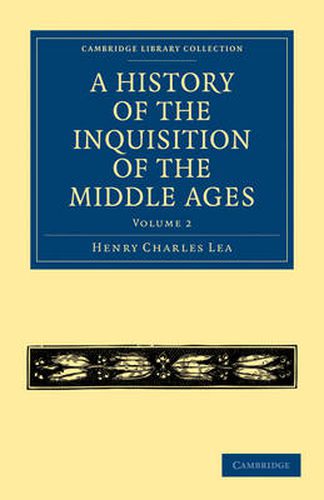Readings Newsletter
Become a Readings Member to make your shopping experience even easier.
Sign in or sign up for free!
You’re not far away from qualifying for FREE standard shipping within Australia
You’ve qualified for FREE standard shipping within Australia
The cart is loading…






This comprehensive three-volume history of the medieval Inquisition by the influential American scholar Henry Charles Lea, first published in 1888, was firmly based on primary sources, and adopted a rationalist approach that departed from the pious tone of earlier histories of the middle ages. Lea was convinced that the Inquisition was not arbitrarily devised and implemented but was an inevitable consequence of forces that were dominant in thirteenth-century Christian society. In Volume 2 Lea focuses mainly on the Inquisition in France, Iberia, Italy and Germany. He delves into the relationship between religion and State in the Languedoc region and describes how the University of Paris obstructed the Inquisition’s activity. Lea notes that there was almost no Inquisition presence in Portugal, while in Italy sporadic popular opposition to the Inquisition was noticeable. He also explains how the Bohemian reformer John Huss fell victim to the Inquisition in Germany.
$9.00 standard shipping within Australia
FREE standard shipping within Australia for orders over $100.00
Express & International shipping calculated at checkout
This comprehensive three-volume history of the medieval Inquisition by the influential American scholar Henry Charles Lea, first published in 1888, was firmly based on primary sources, and adopted a rationalist approach that departed from the pious tone of earlier histories of the middle ages. Lea was convinced that the Inquisition was not arbitrarily devised and implemented but was an inevitable consequence of forces that were dominant in thirteenth-century Christian society. In Volume 2 Lea focuses mainly on the Inquisition in France, Iberia, Italy and Germany. He delves into the relationship between religion and State in the Languedoc region and describes how the University of Paris obstructed the Inquisition’s activity. Lea notes that there was almost no Inquisition presence in Portugal, while in Italy sporadic popular opposition to the Inquisition was noticeable. He also explains how the Bohemian reformer John Huss fell victim to the Inquisition in Germany.